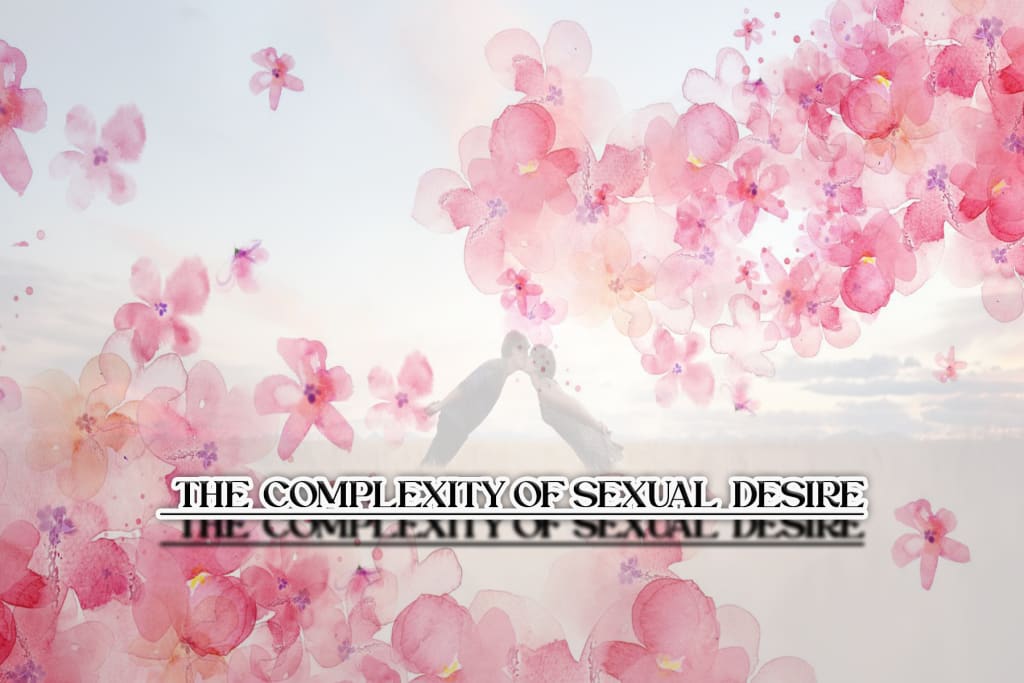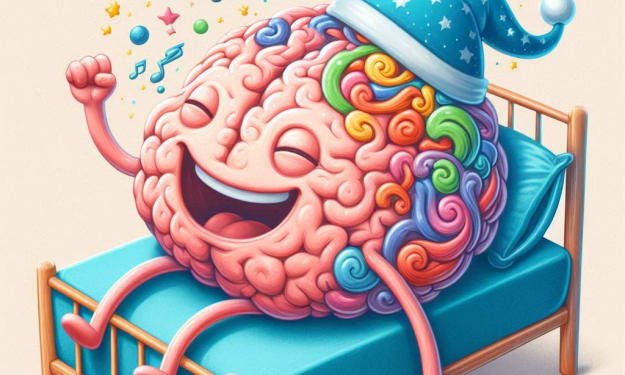"Unveiling the Complexity of Sexual Desire: Beyond Surface Understanding"
"Decoding Desire: Understanding the Complexities of Human Sexuality"

When we talk about being turned on, it's often portrayed as this easy, automatic thing, especially when you're young. But in reality, sexual desire is far from simple. It's not just about feeling a physical urge; it involves both your body and mind. And yeah, we're talking about sex, but before you think it's just about getting frisky, it's important to understand that sexual desire is actually a key part of our physical and mental health. Despite this, it's often seen as a taboo topic, which means a lot of important issues get ignored.
So, what is sexual desire? Well, it's basically the desire for some kind of sexual interaction, whether that's with someone else or just with yourself. But it's not always straightforward, and there's a lot more to it than meets the eye.
Understanding desire isn't easy. People often compare it to food cravings. Like, you might really want cake, but your mouth doesn't water for it. That's similar to how sexual desire works. You can want to have sex, but your body might not show any signs of being turned on.

See, arousal is the physical reaction to desire. So, someone could be really turned on but not mentally or emotionally interested in sex. Or, they might want sex but not feel physically aroused.
This difference between mental desire and physical arousal is called arousal non-concordance. Studies suggest that women experience this more often than men.
To tackle issues like this, it's important to separate physical arousal from sexual desire. By understanding these distinctions, we can address sexual health more effectively.
Actually, there are two main types of desire: spontaneous desire and responsive desire.
Spontaneous desire is when the feeling of wanting to have sex just pops into your head out of nowhere. It's like a sudden urge that you didn't expect.
On the other hand, responsive desire is when you might not be feeling particularly in the mood, but after some kissing, touching, or flirting, you start to want to have sex.
One big misconception about desire is that it should always be spontaneous. This idea contributes to stereotypes, like the belief that men have uncontrollable sexual urges or that women have little desire for sex. But that's not true at all. Anyone, regardless of gender, can experience both spontaneous and responsive desire. In reality, spontaneous desire doesn't happen as often as people might think. Most people's desire tends to be more responsive, although some folks experience both types to different extents.

Responsive desire was only recognized and defined about 20 years ago, but a lot of the world's talk about sex doesn't really cover it. And when it does, it's not always in a positive light. Many people report low desire, but could it be because they're actually experiencing responsive desire in a world that's only taught us about spontaneous desire?
Ultimately, it all boils down to brain stuff. Now, that doesn't mean it's all in your head—there's actual neuroscience behind it. Essentially, we all have brakes and accelerators when it comes to sex. The sexual excitation system (SES) acts like the accelerator: your brain sees something as a positive sexual trigger, setting off a chain reaction of neurotransmitters and hormones that can lead to physical arousal.
But then there's the sexual inhibition system (SIS), which acts like the brake. This system stops those positive responses, like when something gives you the "ick" or your brain perceives a threat, consciously or subconsciously.

Research has shown that these two systems work together in what's called the dual control model. When the accelerator (SES) is stronger than the brakes (SIS), you're more likely to feel in the mood for sex. But when it's the other way around, you're less likely.
Some people might have more sensitive brakes or faster accelerators, and you can be any combination of the two—that's totally normal. Plus, our brains aren't isolated; they're influenced by everything around and within us. Things like medications, past experiences, physical and mental health, body image, relationship status, trauma, and societal messaging about sex all play a role in shaping our desires and behaviors.
Basically, everything can impact sexual desire. That's why it's been challenging for professionals, whether in medicine or mental health, to quickly pinpoint why someone might have low sexual desire, which can be frustrating for those experiencing it. People with low sexual desire might feel broken or sick, affecting their quality of life and relationships.
This situation also opens the door for wellness and pharmaceutical companies to market drugs and supplements claiming to fix low sexual desire. But sometimes, feeling low desire is actually normal, and it's our perception of what's normal that needs adjusting. Until the early 2000s, most research on sexual desire was done in men, leading to scientific and medical norms that might not apply to everyone.

It's important to know that sexual desire can change throughout your life and in different contexts. It's not set in stone. However, it's crucial to differentiate between changeable desire and physiological sexual dysfunction. If you're experiencing pain during sex, extreme emotional distress, or issues related to pregnancy or menopause, it's essential to talk to your healthcare provider.
Ultimately, when it comes to health, including sexual health, everyone is unique.
Absolutely, this applies to sex too. What's considered normal when it comes to sexual desire is unique to each person. There's no universal standard that fits everyone. So, it's important to take the time to understand what excites you, what ignites your desire. Explore and talk about it with your partner if you have one and discover the contexts that work best for you. By getting in touch with your own desires, you can find fulfillment and satisfaction in your sexual experiences.
If you liked this content and want more of this kind, leave a comment saying yes so, I can follow up.
Hit the like button as a token of appreciation.
Thanks for reading. I'll see you next time.

About the Creator
Wali Ahmed Khan
I'm uncovering untold stories or shedding light on pressing issues. I remain dedicated to my craft, driven by a passion for storytelling and a commitment to excellence.
Enjoyed the story? Support the Creator.
Subscribe for free to receive all their stories in your feed. You could also pledge your support or give them a one-off tip, letting them know you appreciate their work.
Reader insights
Outstanding
Excellent work. Looking forward to reading more!
Top insights
Easy to read and follow
Well-structured & engaging content
Eye opening
Niche topic & fresh perspectives






Comments (1)
Great article about sex!!